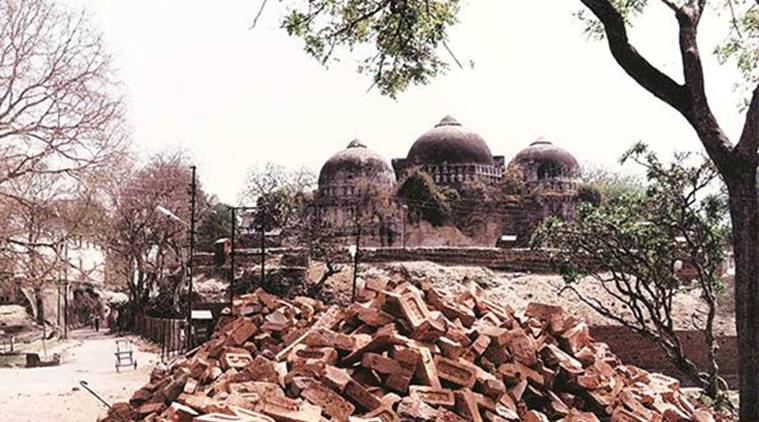From UPSC perspective, the following things are important :
Prelims level: Places of Worship Act, 1991
Mains level: need for the Supreme Court to intervene to protect the integrity of the Places of Worship Act and prevent its politicization

Central Idea:
The article discusses the aftermath of the Supreme Court verdict on the Babri Masjid case in November 2019 and its implications on the Places of Worship (Special Provisions) Act, 1991. It highlights the challenges posed by the resurgence of petitions targeting mosques like the Gyanvapi Masjid in Varanasi and the Shahi Idgah in Mathura, and the subsequent debates on the Act’s validity and applicability. It emphasizes the need for the Supreme Court to intervene to protect the integrity of the Act and prevent its politicization.
Key Highlights:
- Supreme Court’s verdict on the Babri Masjid case in November 2019 praised the Places of Worship Act, 1991 for preserving the religious character of places of worship as of August 15, 1947.
- Hindutva forces initiated petitions targeting mosques in Mathura, Varanasi, and other places, challenging their status and calling for their liberation.
- Despite lack of concrete evidence, petitions against mosques were admitted in various district courts, signaling a deliberate challenge to the Places of Worship Act.
- The Supreme Court’s silence on the increasing challenges to the Act raised concerns about its integrity and enforcement.
- The court’s decision to hear petitions against the Act itself and the Union government’s delays in specifying its stance raised doubts about the Act’s future.
Key Challenges:
- Increasing petitions challenging the status of mosques threaten communal harmony and challenge the secular principles enshrined in the Indian Constitution.
- The politicization of the issue, with petitions being used as a tool to further certain political narratives, adds complexity to the debate.
- Delays in the Supreme Court’s intervention and the government’s ambiguity on the Act’s status create uncertainty and erode public trust in the legal system.
- Historical grievances and communal tensions fuel the resurgence of demands for the reclamation of religious sites.
Main Terms or key words:
- Places of Worship (Special Provisions) Act, 1991: Legislation preserving the religious character of places of worship as of August 15, 1947, and prohibiting their conversion.
- Hindutva: Ideology promoting Hindu nationalism.
- Communal Harmony: Peaceful coexistence and cooperation among different religious communities.
- Secularism: Principle of separating religion from state affairs and ensuring equal treatment of all religions.
- Petitions: Formal requests submitted to a court seeking legal action or remedy.
Important Phrases for mains value addition:
- “Non-retrogression as an essential feature of our secular values.”
- “Challenges to the Act amount to a breach of public trust.”
- “The politicization of petitions serves certain political narratives.”
- “The silence of the top court is unsettling.”
Quotes for quality enrichment of mains answers:
- “The Places of Worship Act imposes a non-derogable obligation towards enforcing our commitment to secularism under the Indian Constitution.”
- “Similarly minded people are as little likely to be deterred by the provisions of the Places of Worship (Special Provisions) Act 1991.”
- “The ascertainment of the religious character of a place as a procedural instrument may not necessarily fall foul of the provisions of sections 3 and 4 of the Act of 1991.”
Anecdotes:
- The order of a district court in Uttar Pradesh in 1986 kick-started events leading to the destruction of the Babri Masjid, illustrating the significance of legal decisions regarding places of worship.
Useful Statements:
- The resurgence of demands for the reclamation of religious sites threatens communal harmony and challenges secular principles.
- The Supreme Court’s intervention is crucial to uphold the integrity of the Places of Worship Act and prevent its politicization.
Examples and References:
- Petitions targeting mosques in Mathura, Varanasi, and other places highlight the growing challenges to the Places of Worship Act.
- The Babri Masjid-Ramjanambhoomi agitation and slogans like “Ayodhya to jhanki hai, Kashi, Mathura baqi hai” demonstrate historical grievances and communal tensions.
Facts and Data:
- The Places of Worship Act, 1991, preserves the religious character of places of worship as of August 15, 1947.
- The Supreme Court admitted petitions challenging the Act’s validity and the government’s delays in specifying its stance.
Critical Analysis:
The article provides a comprehensive overview of the challenges posed by petitions targeting mosques and questioning the Places of Worship Act, 1991. It emphasizes the importance of preserving communal harmony and secular principles while addressing historical grievances. However, it also highlights the politicization of the issue and the need for timely intervention by the Supreme Court to prevent further escalation.
Way Forward:
- The Supreme Court should actively intervene to uphold the integrity of the Places of Worship Act and prevent its politicization.
- Political leaders and stakeholders should prioritize communal harmony and refrain from using religious sentiments for political gain.
- Civil society should promote dialogue and understanding among different religious communities to prevent communal tensions.
- The government should clarify its stance on the Act and ensure its effective implementation to maintain secularism and protect religious freedoms.
Get an IAS/IPS ranker as your 1: 1 personal mentor for UPSC 2024
